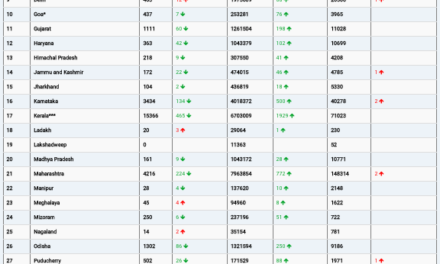Groundbreaking study unveils how aspartate signaling aids cancer cells in spreading to the lungs, opening doors for new therapeutic interventions
Researchers from the lab of Professor Sarah-Maria Fendt at the VIB-KU Leuven Center for Cancer Biology, in collaboration with colleagues, have made a significant discovery regarding why the lungs are such a frequent site for cancer metastasis. Their study, published in Nature on January 1, 2025, reveals that the availability of the amino acid aspartate is a key factor that facilitates the spread of cancer cells to the lung. The findings not only shed light on the biology of cancer metastasis but also offer a potential therapeutic avenue for treating metastatic diseases.
A New Understanding of Lung Metastasis
More than half of cancer patients with metastatic disease experience the spread of cancer cells to the lungs. But what makes the lungs such a desirable environment for cancer cells to thrive in?
To answer this, the team of Prof. Fendt analyzed gene expression in cells from aggressive lung metastases. They identified an altered ‘translation program’ in these cells, which allowed them to adapt more effectively to the lung microenvironment. Translation is the cellular process in which proteins are produced based on genetic instructions, and changes in this process can enhance the growth and survival of cancer cells.
The Role of Aspartate in Lung Metastasis
Aspartate, an amino acid essential for protein synthesis, was identified as a major player in this process. Researchers discovered that the concentration of aspartate in the lungs of mice with metastatic breast cancer was notably higher than in healthy mice or those without cancer. This led them to hypothesize that aspartate could play a crucial role in driving lung metastasis.
Ginevra Doglioni, PhD student at the Fendt lab and first author of the study, explained, “We found high levels of aspartate in the lungs of mice and patients with breast cancer compared to mice and patients without cancer, suggesting that aspartate may be important for lung metastasis.”
Triggering the Translational Program
In cancer cells, proteins known as initiation factors regulate translation. One such factor, eIF5A, was found to undergo an activating modification called hypusination in lung metastases, which was linked to more aggressive cancer behavior. The question then arose: What caused this modification in the first place?
The researchers discovered that aspartate activated an NMDA receptor, a cell surface protein, on cancer cells. This led to a complex signaling cascade that eventually triggered hypusination of eIF5A, promoting the alternative translational program and enabling cancer cells to modify their environment for better growth and survival.
In human lung tumor samples from patients with metastatic breast cancer, a similar translational program was observed, along with higher levels of the NMDA receptor that binds aspartate. This finding further underscores the potential clinical relevance of aspartate signaling in lung metastasis.
Implications for Cancer Treatment
Prof. Fendt emphasized the clinical significance of the findings: “This correlation suggests that aspartate signaling may be a common feature of cancer cells growing in the lung. Moreover, there are already drugs targeting the mechanism we identified, and further research could translate these findings into new treatments for metastatic diseases.”
Funding and Acknowledgments
This research was supported by various funding bodies, including FWO, Kom Op Tegen Kanker, Stichting tegen Kanker, Beug Foundation, King Baudouin Foundation, Fonds Baillet Latour, Francqui Stichting, Foundation ARC, and KU Leuven.
Journal Reference: Nature, DOI: 10.1038/s41586-024-08335-7
The groundbreaking study paves the way for new therapeutic strategies that could limit the spread of cancer, potentially changing the landscape of metastatic cancer treatment.











